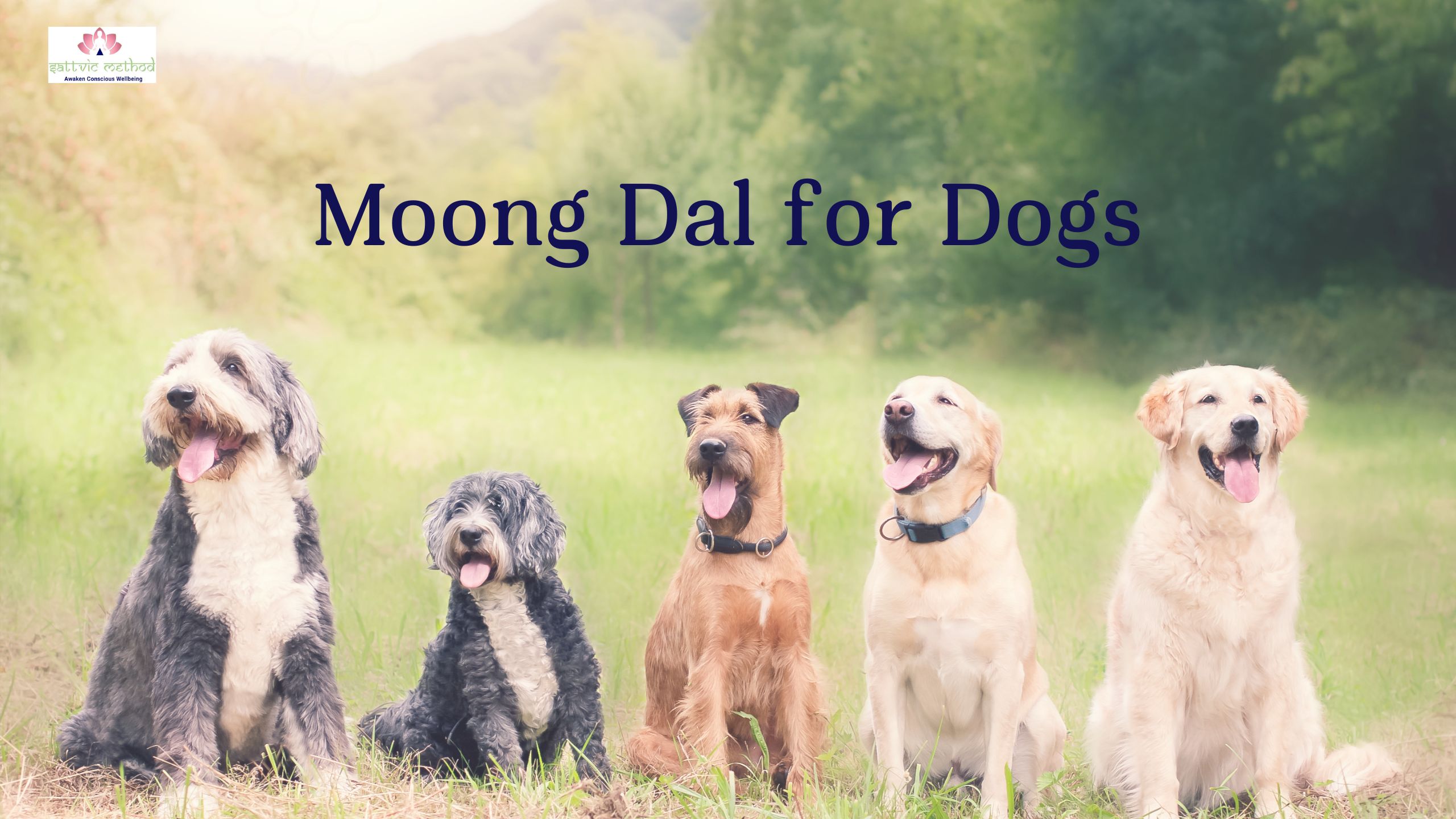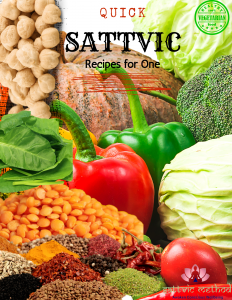Calling all dog lovers! If you’re looking to give your furry friend a healthy and nutritious meal, look no further than mung beans. These little green powerhouses pack a punch when it comes to their nutritional benefits for dogs. In this comprehensive guide, we’ll delve into everything you need to know about feeding mung beans to your canine companion.
Mung beans are a fantastic source of protein, fiber, and essential vitamins and minerals that support your dog’s overall health. Whether you’re seeking to improve their digestion, boost their immune system, or maintain a healthy weight, mung beans have got you covered.
Plus, with their low glycemic index, mung beans are an excellent option for dogs with diabetes or weight management issues. They provide sustained energy without causing spikes in blood sugar levels.
In this guide, we’ll dive into the specific benefits of mung beans, how to prepare and serve them, and any precautions to keep in mind. So, let’s get started on this journey to a healthier and happier pup!
Nutritional Profile of Mung Beans
Mung beans, also known as green gram, are a powerhouse of nutrition for dogs. These small, oval-shaped legumes are packed with an array of essential vitamins, minerals, and other beneficial compounds that can greatly improve your canine’s overall health and well-being.
At the core of mung beans’ nutritional profile is their impressive protein content. A single cup of cooked mung beans contains approximately 15 grams of high-quality plant-based protein. This protein is easily digestible and contains a balanced amino acid profile that supports muscle development, tissue repair, and immune function in dogs.
In addition to protein, mung beans are an excellent source of dietary fiber. Just one cup of cooked mung beans provides a whopping 15 grams of fiber, which is crucial for maintaining a healthy digestive system in dogs. The soluble and insoluble fiber in mung beans can help regulate bowel movements, prevent constipation, and promote the growth of beneficial gut bacteria.
Mung beans are also rich in a variety of essential vitamins and minerals that are vital for canine health. These include vitamin K, folate, manganese, copper, magnesium, and phosphorus, among others. Vitamin K, for instance, plays a crucial role in blood clotting, while folate is essential for red blood cell production and cell growth and development. Manganese and copper, on the other hand, are important for enzyme function, bone health, and antioxidant defense.
Furthermore, mung beans contain a range of phytonutrients, such as flavonoids and phenolic compounds, which possess potent antioxidant properties. These antioxidants can help neutralize free radicals, reducing inflammation and oxidative stress in your dog’s body, which is linked to a variety of health issues.
Overall, the impressive nutritional profile of mung beans makes them a highly beneficial addition to a dog’s diet, providing a wealth of essential nutrients to support their overall well-being.
Health Benefits of Mung Beans for Dogs
Incorporating mung beans into your dog’s diet can provide a wide range of health benefits, making them a valuable addition to your canine’s meal plan. Here are some of the key ways in which mung beans can support your dog’s health:
Digestive Health: The high fiber content in mung beans is particularly beneficial for dogs, as it can help regulate bowel movements, prevent constipation, and promote the growth of beneficial gut bacteria. The soluble fiber in mung beans can also help soothe digestive issues, such as diarrhea, by absorbing excess moisture in the intestines.
Immune System Support: Mung beans are rich in vitamins and minerals, such as vitamin K, folate, and manganese, which play crucial roles in supporting a healthy immune system. These nutrients help boost the production of white blood cells, enhance the body’s ability to fight off infections and diseases, and reduce inflammation, which can contribute to various health problems.
Weight Management: Mung beans have a low glycemic index, which means they are digested and absorbed slowly, providing a steady source of energy without causing spikes in blood sugar levels. This can be particularly beneficial for dogs that are overweight or struggling with diabetes, as it can help regulate their appetite and maintain a healthy weight.
Cardiovascular Health: The high fiber and low-fat content of mung beans make them a heart-healthy addition to a dog’s diet. The soluble fiber in mung beans can help lower cholesterol levels and reduce the risk of cardiovascular disease, while the antioxidants present in these legumes can protect the heart and blood vessels from oxidative damage.
Skin and Coat Health: Mung beans are a good source of biotin, a B-vitamin that is essential for healthy skin and a shiny, lustrous coat in dogs. The antioxidants in mung beans can also help reduce inflammation and soothe skin irritations, making them a beneficial addition for dogs with skin conditions or allergies.
By incorporating mung beans into your dog’s diet, you can provide them with a wealth of essential nutrients and support their overall health and well-being in numerous ways. Whether you’re looking to improve your dog’s digestion, boost their immune system, or maintain a healthy weight, mung beans are a versatile and nutritious option worth considering.
Incorporating Mung Beans into Your Dog’s Diet
Incorporating mung beans into your dog’s diet is a simple and effective way to provide them with a wealth of essential nutrients and health benefits. Here are some tips on how to successfully introduce mung beans to your canine companion:
Start Slowly: When introducing any new food to your dog’s diet, it’s important to do so gradually to avoid any digestive upset. Begin by adding a small amount of cooked mung beans to your dog’s regular meals, gradually increasing the portion over the course of a week or two. This will give your dog’s digestive system time to adjust to the new addition.
Cooked is Best: While dogs can technically eat raw mung beans, it’s generally recommended to cook them first. Cooking helps to break down the beans’ complex carbohydrates and makes them more easily digestible for your dog. You can either boil, steam, or bake the mung beans until they are soft and tender.
Adjust the Portion: The amount of mung beans you feed your dog will depend on their size, age, and overall dietary needs. As a general guideline, start with a small amount, such as 1-2 tablespoons per meal for a medium-sized dog, and adjust the portion as needed based on your dog’s individual response and preferences.
Combine with Other Ingredients: To make mung beans even more appealing and nutritious for your dog, you can combine them with other wholesome ingredients, such as cooked brown rice, protein, or steamed vegetables. This can help create a balanced and well-rounded meal that your dog is sure to enjoy.
Monitor for Allergies: While mung beans are generally well-tolerated by dogs, some canines may have an allergic reaction to them. Be sure to monitor your dog closely after introducing mung beans to their diet, and discontinue use if you notice any signs of an adverse reaction, such as skin irritation, digestive upset, or changes in behavior.
By following these tips, you can successfully incorporate mung beans into your dog’s diet and provide them with a wealth of nutritional benefits to support their overall health and well-being.
Preparing Mung Beans for Dogs
Preparing mung beans for your dog is a simple and straightforward process that can be done in a few easy steps. Here’s a guide on how to properly prepare mung beans for your canine companion:
Soaking the Beans: Before cooking, it’s important to soak the mung beans in water for at least 4-6 hours, or even overnight. This helps to soften the beans and make them more easily digestible for your dog. Drain and rinse the soaked beans before proceeding with the cooking process.
Cooking the Beans: There are several ways to cook mung beans for your dog, and the method you choose will depend on your personal preference and the time you have available. Here are a few options:
- Boiling: Place the soaked mung beans in a pot and cover them with fresh water. Bring the water to a boil, then reduce the heat and simmer for 20-30 minutes, or until the beans are soft and tender.
- Steaming: Place the soaked mung beans in a steamer basket and steam them for 15-20 minutes, or until they are cooked through.
- Baking: Preheat your oven to 375°F (190°C). Spread the soaked mung beans on a baking sheet and bake for 20-25 minutes, stirring occasionally, until the beans are soft and lightly browned.
Mashing or Pureeing: Once the mung beans are cooked, you can mash or puree them to create a smooth, easily digestible texture for your dog. This can be particularly helpful for older dogs or those with dental issues who may have difficulty chewing larger pieces of beans.
Cooling and Storing: After cooking, allow the mung beans to cool completely before serving them to your dog. You can store any leftover cooked beans in an airtight container in the refrigerator for up to 3-4 days, or in the freezer for longer-term storage.
Remember to always consult with your veterinarian before introducing any new foods to your dog’s diet, and to start with small portions to ensure your canine companion tolerates the mung beans well.
Potential Side Effects and Precautions of Feeding Mung Beans to Dogs
While mung beans are generally a safe and nutritious addition to a dog’s diet, there are a few potential side effects and precautions to be aware of when feeding them to your canine companion.
Digestive Upset: Due to their high fiber content, introducing mung beans too quickly or in large quantities can lead to digestive issues, such as gas, bloating, or diarrhea. It’s important to start with small portions and gradually increase the amount over time to allow your dog’s digestive system to adjust.
Allergic Reactions: As with any new food, some dogs may have an allergic reaction to mung beans. Signs of an allergic reaction may include skin irritation, hives, itching, or digestive problems. If you notice any of these symptoms after feeding your dog mung beans, discontinue use and consult your veterinarian.
Interaction with Medications: Mung beans can potentially interact with certain medications, such as blood thinners or diabetes medications. If your dog is currently taking any prescription drugs, it’s important to consult with your veterinarian before adding mung beans to their diet.
Potential Kidney Stones: Mung beans are relatively high in oxalates, which can contribute to the formation of kidney stones in some dogs. This is particularly a concern for dogs with a history of kidney or bladder stones. If your dog has a known history of these issues, it’s best to consult your veterinarian before incorporating mung beans into their diet.
Choking Hazard: Whole or partially cooked mung beans can pose a choking hazard, especially for smaller dogs or those with dental issues. It’s important to ensure that the beans are cooked until they are soft and easily digestible, and to monitor your dog while they are eating to prevent any choking incidents.
By being mindful of these potential side effects and precautions, you can safely incorporate mung beans into your dog’s diet and enjoy the many health benefits they have to offer. As always, it’s best to consult with your veterinarian before making any significant changes to your dog’s diet.
Mung Bean Recipes for Dogs
Incorporating mung beans into your dog’s diet can be a delicious and nutritious way to support their overall health and well-being. Here are a few tasty mung bean recipes for your canine companion:
Mung Bean Stew
Ingredients:
- 1 cup cooked mung beans
- 1 cup shredded cooked protein
- 1 cup low-sodium broth
- 1/2 cup diced carrots
- 1/2 cup diced sweet potatoes
- 1 tablespoon chopped parsley
Instructions:
- In a saucepan, combine the cooked mung beans, protein, and broth.
- Add the diced carrots and sweet potatoes, and bring the mixture to a simmer.
- Cook for 10-15 minutes, or until the vegetables are tender.
- Remove from heat and stir in the chopped parsley.
- Allow the stew to cool slightly before serving to your dog.
Mung Bean and Pumpkin Puree
Ingredients:
- 1 cup cooked mung beans
- 1/2 cup canned pumpkin puree
- 1/4 cup plain Greek yogurt
- 1 teaspoon ground cinnamon
Instructions:
- In a food processor or blender, combine the cooked mung beans, pumpkin puree, Greek yogurt, and ground cinnamon.
- Blend until the mixture is smooth and creamy.
- Serve the mung bean and pumpkin puree to your dog, either on its own or mixed into their regular food.
Mung Bean and Sweet Potato Bites
Ingredients:
- 1 cup cooked mung beans
- 1 cup mashed sweet potatoes
- 2 tablespoons rolled oats
- 1/4 cup shredded cheese (optional)
Instructions:
- Preheat your oven to 375°F (190°C).
- In a large bowl, mix together the cooked mung beans, mashed sweet potatoes, rolled oats until well combined.
- If desired, stir in the shredded cheese.
- Scoop the mixture by the tablespoonful onto a baking sheet lined with parchment paper.
- Bake for 20-25 minutes, or until the bites are lightly golden and firm.
- Allow the bites to cool completely before serving to your dog.
These are just a few examples of the many ways you can incorporate mung beans into your dog’s diet. Feel free to experiment with different ingredients and flavors to find the perfect mung bean recipe that your canine companion will love.
FAQs about Mung Beans for Dogs
Q: Are mung beans safe for dogs to eat?
A: Yes, mung beans are generally safe for dogs to eat in moderation. They are a highly nutritious and well-tolerated legume that can provide numerous health benefits when incorporated into a dog’s diet.
Q: How much mung beans can I feed my dog?
A: The recommended amount of mung beans to feed your dog will depend on their size and individual dietary needs. As a general guideline, start with 1-2 tablespoons of cooked mung beans per meal for a medium-sized dog and adjust the portion as needed. Always consult with your veterinarian to determine the appropriate amount for your dog.
Q: Can mung beans cause digestive issues in dogs?
A: Yes, introducing mung beans too quickly or in large quantities can lead to digestive problems, such as gas, bloating, or diarrhea. It’s important to start with small portions and gradually increase the amount over time to allow your dog’s digestive system to adjust.
Q: Are there any dogs that should not eat mung beans?
A: Dogs with a history of kidney or bladder stones, or those taking certain medications, may need to avoid or limit their intake of mung beans due to the potential for interactions or increased risk of stone formation. Consult with your veterinarian before feeding mung beans to your dog, especially if they have any pre-existing medical conditions.
Q: How should I prepare mung beans for my dog?
A: Cooking the mung beans is recommended to make them more easily digestible for your dog. You can boil, steam, or bake the beans until they are soft and tender. Mashing or pureeing the cooked beans can also be beneficial, particularly for older dogs or those with dental issues.
Q: Where can I buy mung beans for my dog?
A: Mung beans can be found in most grocery stores, health food stores, or online retailers that sell specialty food items. Look for dried or canned mung beans in the international or health food aisles of your local store.
Remember, always consult with your veterinarian before making any significant changes to your dog’s diet, and monitor your canine companion closely when introducing new foods, such as mung beans.
Where to Buy Mung Beans for Your Dog
Mung beans are a versatile and nutritious ingredient that can be easily incorporated into your dog’s diet. Fortunately, they are widely available and can be found in a variety of retail locations. Here are some of the best places to purchase mung beans for your canine companion:
Grocery Stores: Many mainstream grocery stores, such as Walmart, Kroger, or Safeway, will carry dried or canned mung beans in the international food or health food sections of their stores. These are often a cost-effective option and can be easily found.
Health Food Stores: Specialty health food stores, like Whole Foods or Sprouts, are also great places to find high-quality mung beans. These stores typically offer a wider selection of organic, non-GMO, and sustainably sourced mung beans.
Asian Grocery Stores: If you have access to an Asian grocery store or market in your local area, they are an excellent source for mung beans. These stores often carry a variety of dried, canned, and even pre-cooked mung bean products specifically tailored for Asian cuisine.
Online Retailers: For a convenient and wide selection of mung beans, you can also purchase them online from various e-commerce platforms, such as Amazon, Chewy, or specialty health food websites. This can be especially helpful if you have difficulty finding mung beans in your local brick-and-mortar stores.
When purchasing mung beans for your dog, be sure to look for high-quality, organic, and non-GMO options whenever possible. Avoid any mung bean products that contain additional ingredients, such as preservatives. Buy fresh packed mung beans.
We hope you found the information provided valuable and insightful. Remember, your dog’s health is a priority, and by incorporating moong dal into their diet, you can take a step towards ensuring their overall well-being. If you have any further questions or need assistance with your dog’s nutrition, do not hesitate to consult with your veterinarian. Happy feeding!
Read and share our other pet diet related blog posts—




